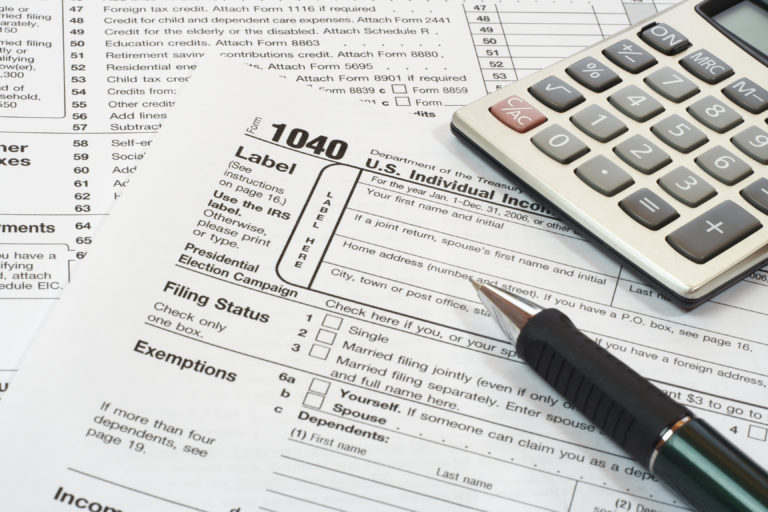The contentious tax overhaul is beginning to deliver a change that many will welcome — bigger paychecks.
Workers are starting to see more take-home pay as employers implement the new withholding guidelines from the IRS, which dictate how much employers withhold from pay for federal taxes. Those whose checks have remained the same shouldn’t fret — employers have until Feb. 15 to make the changes.
Treasury Secretary Steven Mnuchin has estimated that the new rules will mean more take-home pay for about 90 percent of American workers.
How much extra cash? It depends on several factors, such as workers’ income, how often they are paid and the number of withholdings allowances they claim on their IRS Form W-4 with their employer.
Those whose employers were quick to make the change welcomed the extra money — anywhere from a few dollars to a few hundred dollars.
Wayne Love, who works in managed care in Spring Hill, Florida, got an extra $200 in his paycheck last week, which he said will help offset a $300 increase in the cost of his health insurance.
“I have heard time and again that the middle class is getting crumbs, but I’ll take it!” Love said by email.
Julia Ketchum, a secretary at a public high school in Lancaster, Pennsylvania, said she was pleasantly surprised her pay went up $1.50 a week. She didn’t think her pay would go up at all, let alone this soon. That adds up to $78 a year, which she said will more than cover her Costco membership for the year.
And Todd Anderson of Texas and his fiance, who are both educators, got an extra $200 in their paychecks combined that they plan to use to cover the costs of a second baby on its way.
According to the nonpartisan Tax Policy Center, a middle-income household would on average get a tax cut of $930 this year, lifting their after-tax income by about 1.6 percent. That increase won’t be perfectly reflected in their paycheck though.
That’s because lower tax withholding on paychecks is just a piece of a complicated set of changes to tax law that the GOP pushed through in December. And what your employer withholds is based on an estimate of your tax obligation that includes many complex factors, but it’s not a perfect measure.
As a result, taxpayers may find they are unintentionally over- or underwithholding for their taxes if they don’t do some legwork.
Senator Ron Wyden, on the Senate Finance Committee, and Rep. Richard Neal, on the House Ways and Means Committee, both Democrats, have asked the Government Accountability Office to analyze the new tables to make sure workers’ paychecks weren’t being systematically underwithheld, which would make paychecks bigger now but lead to a bigger bill at tax time. Mnuchin, speaking at a White House press briefing, dismissed this notion as “ridiculous.”
Still, experts suggest that all taxpayers take a look the new IRS calculator when it becomes available later in February to ensure they are having the correct amount withheld. And they should update the information on their W-4 after the IRS releases a revised version later this year.
For most people though, no change will be needed.
The IRS said the new withholding tables should produce an accurate withholding amount for people with simpler tax situations. But tax experts say those who will still itemize, have larger families or more complicated tax situations may want to take a closer look.
“If they haven’t done it before, this is a really good year to talk to your tax professional,” said Pete Isberg, vice president of government relations for ADP, a payroll provider.
The IRS, payroll and tax professionals have been scrambling to react to the passage of the new tax law. And the IRS says it plans to make further changes involving withholding matters in 2019. Many in the industry say they expect the IRS to update the W-4 form in 2019 in a more dramatic fashion to fully reflect the scope of the law.
No worker should anticipate a negative impact from the new withholding table if their pay remained the same, said Joseph Rosenberg, a senior researcher at the nonpartisan Tax Policy Center.
However, someone who got a raise may face a higher tax rate as a result. And some corporations have been handing out bonuses and wage increases in reaction to passage of the law. A worker’s net pay may also fall if other factors that go into their paycheck changed — such as an increase in health insurance premiums or higher state taxes.
Still, a little extra money in the hands of most Americans may also help boost support of President Donald Trump and his tax plan. Trump and the Republican backers of the plan have deflected criticism of the legislation, insisting that Americans will come to love the new law when they see their heftier paychecks.
Some workers received the increase with mixed emotions though.
“It’s tough to be upset about more money in my pocket,” said Jefferey Snively, an aerospace engineer who got a 4 percent bump in his last paycheck due to the lower tax rate.
He said that’s not enough to feel like a windfall or change his spending habits, but is a pleasant change. Yet, he thinks the tax overhaul wasn’t really about him or other workers, but more about corporations and the wealthy.
“I think the people this bill made the most difference for are the ones who needed it least,” he said.
(AP)











